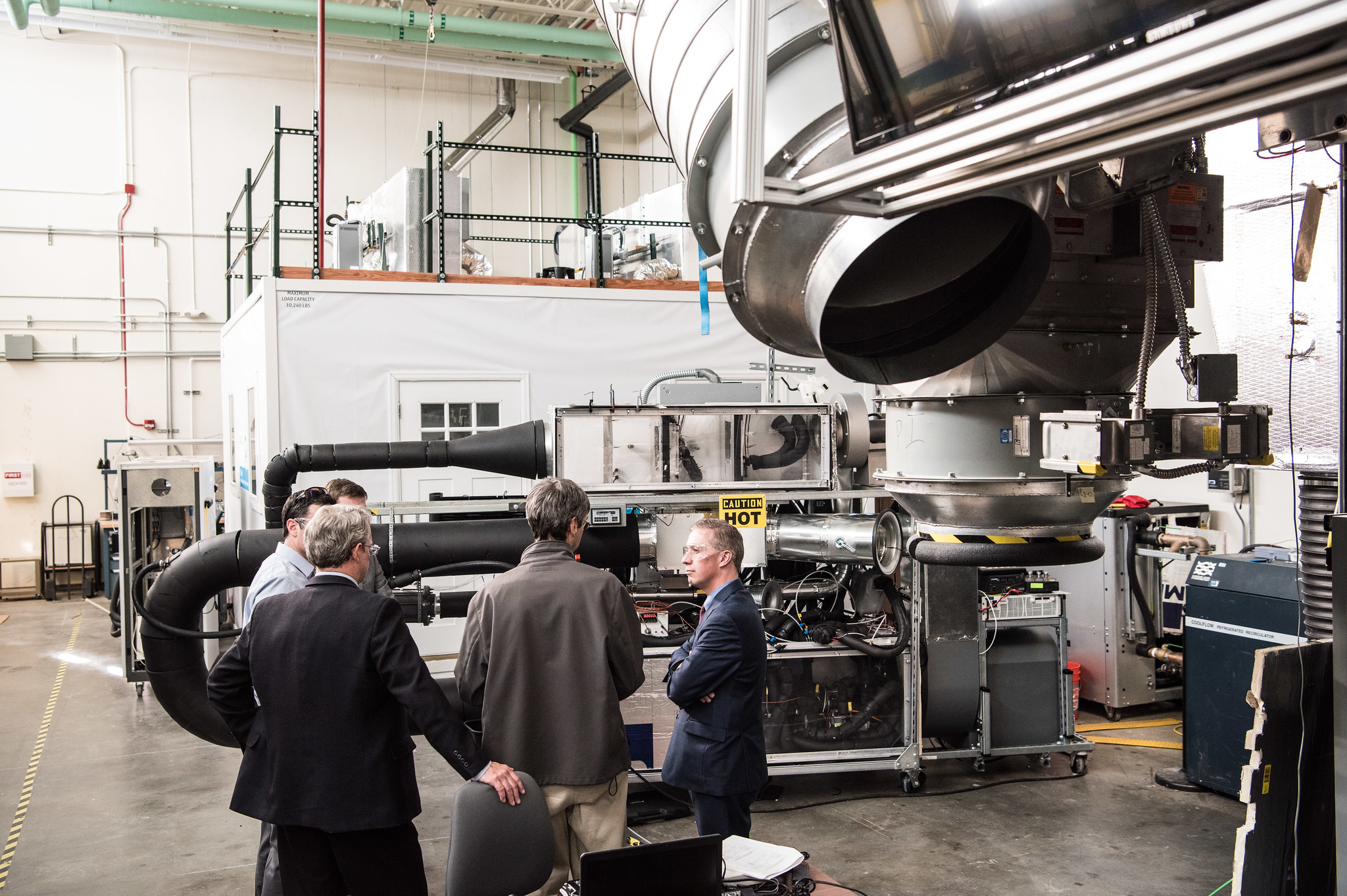
The majority of government-funded research outside of the defense sphere is outsourced to externalized collaborations of university labs and/or commercial organizations. However, not all scientific challenges can be met by academia and industry. Academic incentives discourage systematic teamwork and projects with a low possibility of publishable results, while commercial profit motive encourages teamwork but precludes the production of public goods. As a result, projects that fall in between academic and commercial incentives often go untouched. To address this gap, the U.S. government should fund centralized research programs, termed Focused Research Organizations (FROs), to address well-defined challenges that require scale and coordination but that are not immediately profitable. Each FRO would strive to accelerate a key R&D area via “multiplier effects” (such as dramatically reducing the cost of collecting critical scientific data), provide the United States with a decisive competitive advantage in that area, and de-risk substantial follow-on investment from the private and/or public sectors.
Below, we have published an assortment of proposals we believe are worthy of the FRO model.
Measuring how neurons integrate their inputs and respond to them is key to understanding the impressive and complex behavior of humans and animals. However, a complete measurement of neuronal Input-Output Functions (IOFs) has not been achieved in any animal.
Wearable health electronics are now ubiquitous, but continuous molecular monitoring is only widely available for glucose.
To address the gap between academic and commercial incentives, the U.S. government should fund centralized research programs, known as FROs, to address well-defined challenges.
Systematically sequencing the genome and studying the function of genes from viruses will enable the development of phage-gene libraries that can in turn enable the faster development of genetic tools for advancing molecular biology.
Research and engineering to reverse antibiotic resistance in aquatic bacteria, through the application of a well-validated CRISPR-based genetic system, can help catalyze safer, more sustainable land-based aquaculture as a nutritious and affordable food source.
RNA therapeutics are gaining popularity since they are cheap and easy to make, but sequencing technologies today rely on converting RNA back to cDNA, which collapses information on the more than 150 different chemically modified bases for RNA into just four bases.
Humanity needs catalysts to create fuel, feedstocks to make materials, and fertilizers to grow food. Catalysts allow us to arrange atoms into the molecules we need with extremely high selectivity, cleanliness, and low energy input.
Many antibodies that scientists purchase from commercial manufacturers to conduct their research do not work as advertised, because most have never been validated properly.
The [C]Worthy Project will create first-of-its-kind, open-source software infrastructure for ocean carbon measurement, reporting and verification (MRV) to help drive the nascent marine-based carbon dioxide removal market.
Our current knowledge of the biochemical compounds in food is incredibly limited, but existing databases of MassSpec scans contain massive amounts of untapped, unannotated information about food ingredients.
Artificial intelligence places strenuous demands on current computing hardware, but the integration of semiconductors, superconductors, and optical hardware will create revolutionary new tools for AI.
